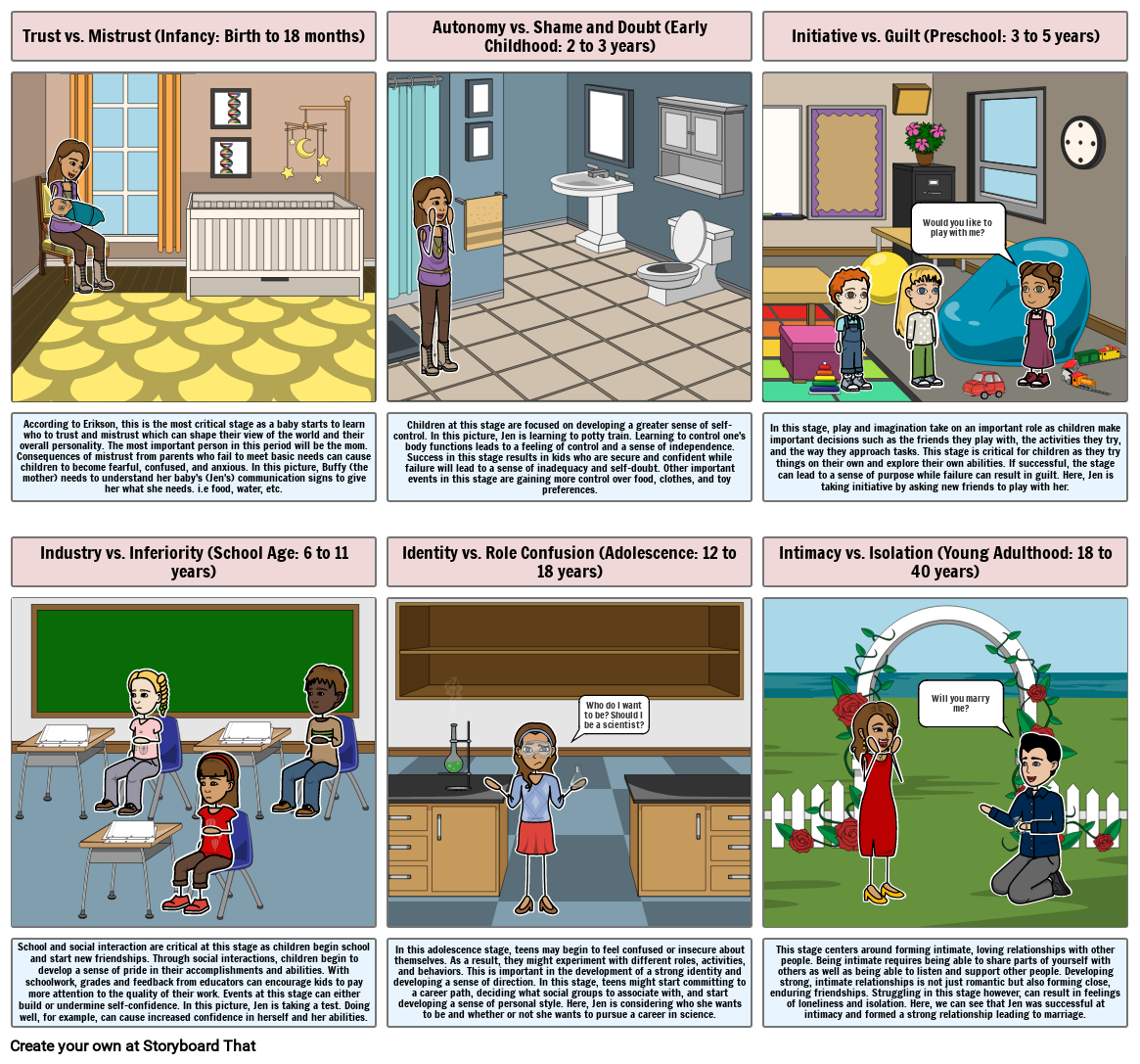Unknown Story

Storyboard Text
- Trust vs. Mistrust (Infancy: Birth to 18 months)
- Autonomy vs. Shame and Doubt (Early Childhood: 2 to 3 years)
- Initiative vs. Guilt (Preschool: 3 to 5 years)
- Would you like to play with me?
- According to Erikson, this is the most critical stage as a baby starts to learn who to trust and mistrust which can shape their view of the world and their overall personality. The most important person in this period will be the mom. Consequences of mistrust from parents who fail to meet basic needs can cause children to become fearful, confused, and anxious. In this picture, Buffy (the mother) needs to understand her baby's (Jen's) communication signs to give her what she needs. i.e food, water, etc.
- Industry vs. Inferiority (School Age: 6 to 11 years)
- Children at this stage are focused on developing a greater sense of self-control. In this picture, Jen is learning to potty train. Learning to control one's body functions leads to a feeling of control and a sense of independence. Success in this stage results in kids who are secure and confident while failure will lead to a sense of inadequacy and self-doubt. Other important events in this stage are gaining more control over food, clothes, and toy preferences.
- Identity vs. Role Confusion (Adolescence: 12 to 18 years)
- In this stage, play and imagination take on an important role as children make important decisions such as the friends they play with, the activities they try, and the way they approach tasks. This stage is critical for children as they try things on their own and explore their own abilities. If successful, the stage can lead to a sense of purpose while failure can result in guilt. Here, Jen is taking initiative by asking new friends to play with her.
- Intimacy vs. Isolation (Young Adulthood: 18 to 40 years)
- Will you marry me?
- School and social interaction are critical at this stage as children begin school and start new friendships. Through social interactions, children begin to develop a sense of pride in their accomplishments and abilities. With schoolwork, grades and feedback from educators can encourage kids to pay more attention to the quality of their work. Events at this stage can either build or undermine self-confidence. In this picture, Jen is taking a test. Doing well, for example, can cause increased confidence in herself and her abilities.
- In this adolescence stage, teens may begin to feel confused or insecure about themselves. As a result, they might experiment with different roles, activities, and behaviors. This is important in the development of a strong identity and developing a sense of direction. In this stage, teens might start committing to a career path, deciding what social groups to associate with, and start developing a sense of personal style. Here, Jen is considering who she wants to be and whether or not she wants to pursue a career in science.
- Who do I want to be? Should I be a scientist?
- This stage centers around forming intimate, loving relationships with other people. Being intimate requires being able to share parts of yourself with others as well as being able to listen and support other people. Developing strong, intimate relationships is not just romantic but also forming close, enduring friendships. Struggling in this stage however, can result in feelings of loneliness and isolation. Here, we can see that Jen was successful at intimacy and formed a strong relationship leading to marriage.
Over 30 Million Storyboards Created

